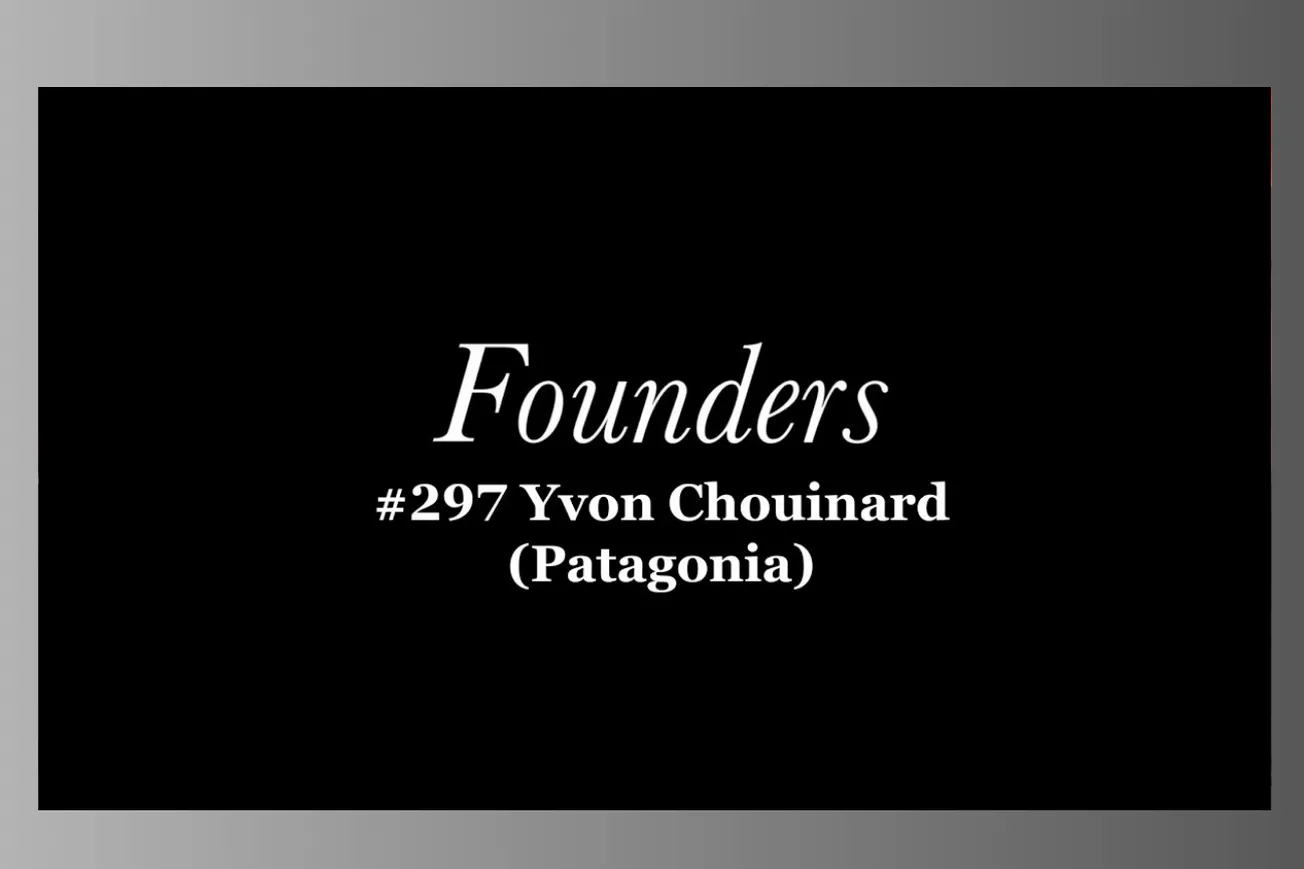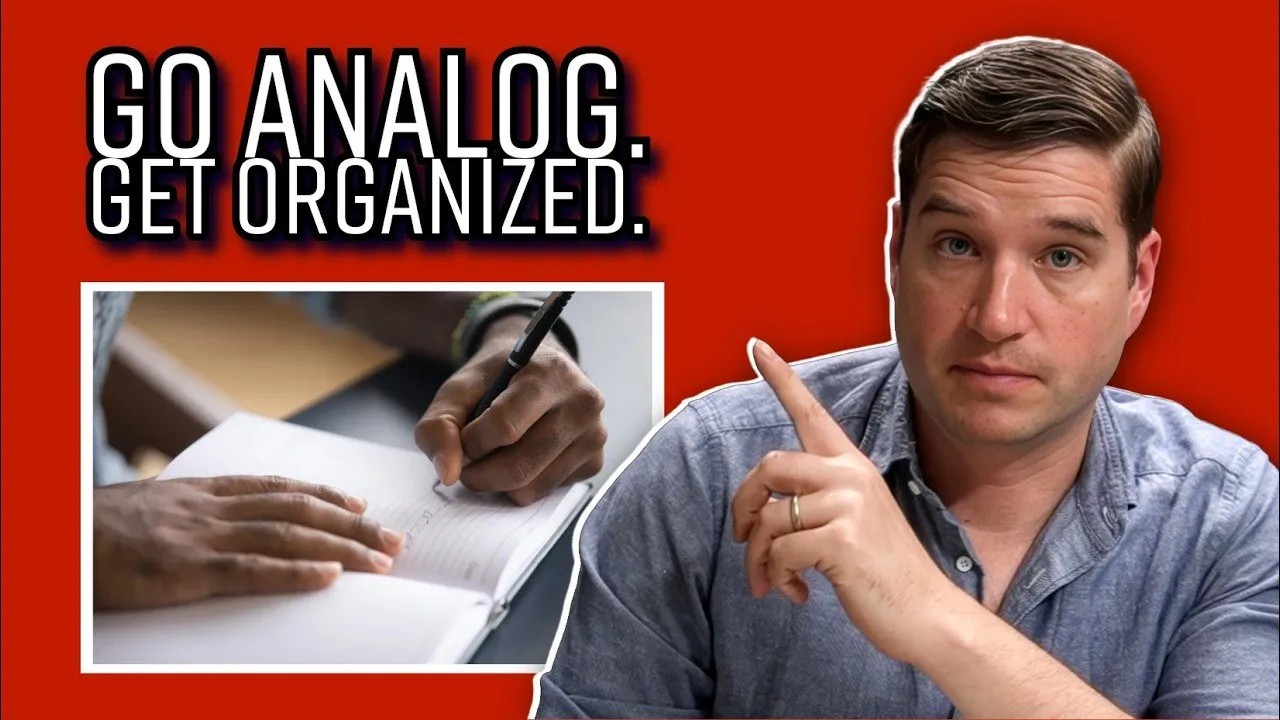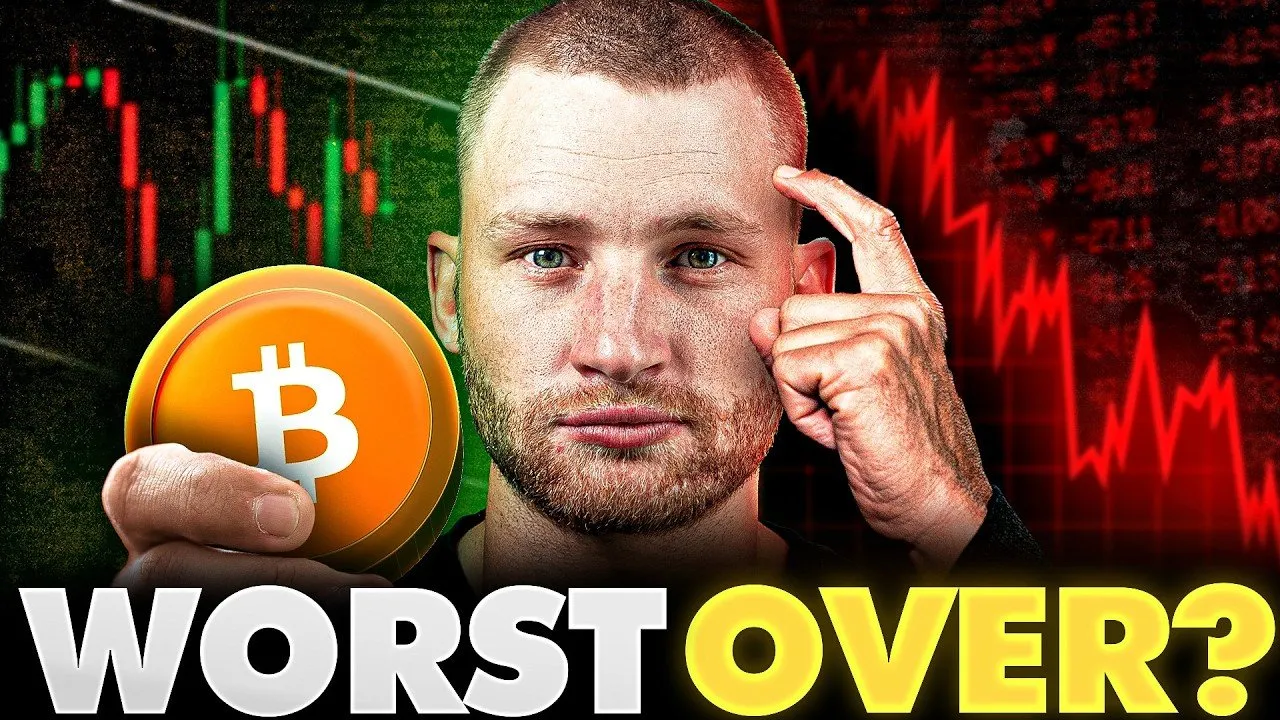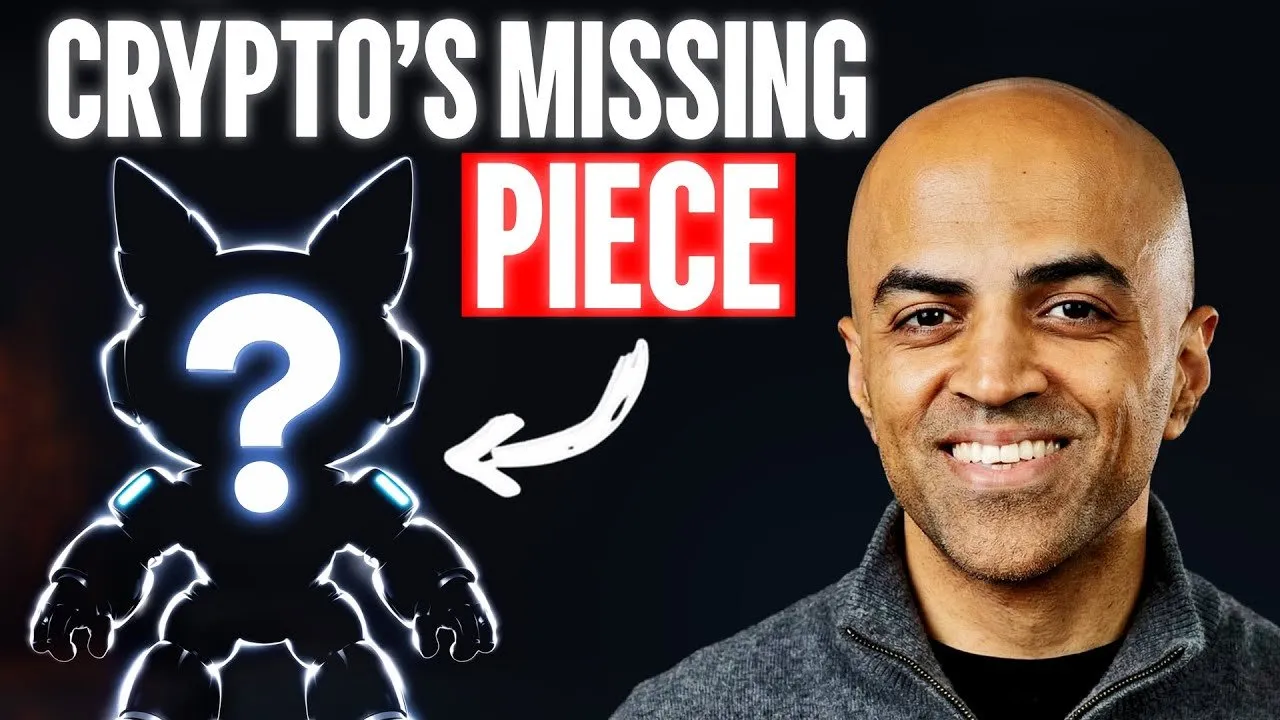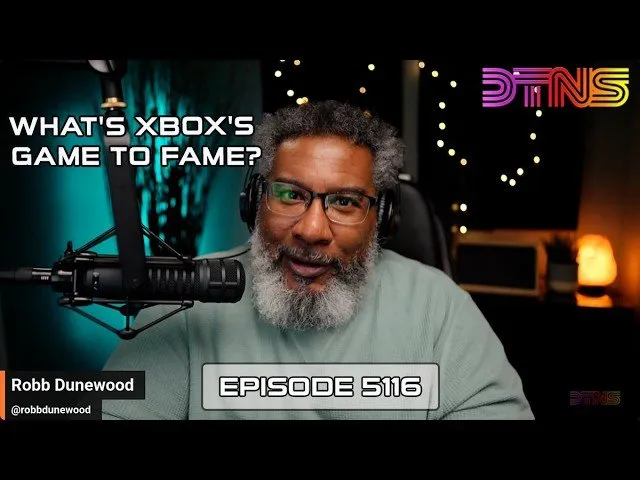Table of Contents
Yvon Chouinard transformed from a reluctant entrepreneur making climbing gear in his car trunk into the founder of a billion-dollar company by refusing to compromise on quality and authenticity.
Key Takeaways
- Chouinard became an entrepreneur reluctantly because existing climbing gear quality was inadequate for life-or-death situations, proving that necessity drives the best innovations
- His North Star philosophy: "Make the best product, period" - not among the best or best at a price point, but absolutely the best without compromise
- "Non-fiction marketing" based on authentic storytelling outperformed traditional advertising by building genuine customer relationships rather than fictional brand personas
- Being your own first customer provides invaluable product insights that market research cannot replicate, leading to innovations that solve real problems
- The "yarak" principle - keeping companies super alert, hungry but not weak, and ready to hunt - prevents complacency that kills successful businesses
- Long-term thinking oriented around 100-year sustainability creates different decision-making frameworks than quarterly profit maximization
- Quality control becomes life-or-death important when you're testing your own products in extreme conditions, ensuring excellence through personal risk
- Breaking conventional business rules while maintaining profitability proves that authentic company culture can coexist with commercial success
- Teaching customers through educational content generates more sustainable sales than direct advertising by building trust and expertise
Timeline Overview
- 1957-1965 — Self-taught blacksmithing to create superior climbing gear, selling equipment from car trunk while traveling California coast for surfing and climbing
- 1965-1970 — Chouinard Equipment Company emerges from garage operation, pioneering reusable climbing hardware with philosophical commitment to "leave no trace"
- 1970-1973 — Rugby shirt discovery leads to clothing line launch, realizing apparel could subsidize marginally profitable equipment manufacturing
- 1973-1980 — Patagonia founded as clothing company, rapid growth through word-of-mouth and authentic marketing to outdoor community
- 1980-1990 — Explosive growth from $20 million to $100 million annually, facing organizational complexity and questioning company direction
- 1990-1995 — Crisis period leading to company restructuring, development of written philosophy, and commitment to environmental mission
- 1995-Present — Sustainable growth model established with focus on quality over quantity, long-term thinking, and environmental stewardship
The Reluctant Entrepreneur: Quality as Necessity
- Chouinard's entrepreneurial journey began from frustration rather than ambition when he discovered that "all climbing gear was European and the soft iron pitons were meant to be placed once and left in position," violating his philosophical commitment to leaving no trace in nature.
- His self-taught blacksmithing skills emerged from necessity: "I wanted to make my own climbing hardware" because existing products didn't meet his quality standards for life-threatening situations, demonstrating how personal need drives innovation better than market research.
- The price-quality relationship proved immediately powerful when his handmade pitons sold for $1.50 each while European competitors cost 20 cents, yet customers "had to have my new gear if you wanted to do the state-of-the-art climbs that we were doing."
- His resourcefulness during poverty years taught essential business lessons: "We ate cat food but living and surviving and then thriving like this actually taught him" that constraints force creative solutions and build resilience for future challenges.
- The mobile workshop concept demonstrated extreme adaptability: "Most of my tools were portable so I could load up my car and travel up and down the California coast from Big Sur to San Diego. I would surf and then I would haul my anvil down to the beach and I'd start making pitons."
- Being his own first customer created an unbreakable feedback loop where product failures had personal consequences: "Quality control was always foremost in our minds because if a tool failed it could kill someone and since we were our own best customers there was a good chance that it would be us."
The Philosophy of "Make the Best, Period"
- Chouinard's unwavering commitment to absolute quality became Patagonia's cornerstone: "Make the best is a difficult goal. It doesn't mean among the best or the best at a particular price point. It means make the best, period."
- His design philosophy borrowed from aviation pioneer Antoine de Saint-Exupéry: "Perfection is finally attained not when there is no longer anything to add, but when there is no longer anything to take away," emphasizing simplicity over complexity.
- The Ferrari versus Cadillac comparison illustrated his design thinking: while Ferrari's "clean lines suited its high performance aim," Cadillac's design "didn't even have any functional aims" and looked like "a living room floating down the highway to the golf course."
- Quality correlation with business success became a measurable principle: "Quality not price has the highest correlation with business success. Companies with high product and service quality reputations have an average return on investment rates 12 times higher than their lower quality and low price competitors."
- The competitive advantage of unique products emerged from this philosophy: "I'd much rather design and sell products so good and so unique that they have no competition" rather than competing in commodity markets where "no one needs" identical products.
- His personal commitment extended beyond business metrics: "I cannot imagine any company that wants to make the best product of its kind being staffed by people who do not care passionately about the product" - passion for excellence had to permeate the entire organization.
Non-Fiction Marketing: Authenticity Over Advertising
- Chouinard pioneered "non-fiction marketing" based on authentic storytelling rather than manufactured brand personas: "Our branding efforts are simple: tell people who we are. We don't have to create some fictional character like the Marlboro man or a fake responsible caring campaign."
- The philosophy recognized that "people crave authenticity" and respond negatively to corporate fiction: "Writing fiction is so much more difficult than non-fiction. Fiction requires creativity and imagination. Non-fiction deals with simple truths."
- Customer-generated content emerged organically when Patagonia requested real photos: "We put a notice in our catalog for our customers to capture Patagonia and we were inundated with photo submissions from our customers and photographers - photos of real people doing real things."
- Educational content strategy prioritized teaching over selling: "The mail order catalog has always been our soapbox and enables us to transmit information about Patagonia's philosophies and products directly. Selling ourselves and our philosophy is equally important to selling the product."
- The approach generated sustainable competitive advantages because authenticity "cannot be made into a formula. In fact, because so much of the image relies on authenticity, a formula would destroy it. Without a formula, the only way to sustain an image is to live up to it."
- Public relations became more credible than advertising: "Our approach to public relations is aggressive. Advertising rates dead last as credible source of information" while educational content built trust and expertise that translated into customer loyalty.
Being Your Own First Customer
- Chouinard's product development advantage came from personal use in extreme conditions: "I had faith that the product was good and I knew the market" because he was testing everything himself in life-threatening situations.
- The rugby shirt discovery exemplified this principle when he bought "a regulation team rugby shirt to wear for rock climbing. Overbuilt to withstand the rigors of rugby, it had a collar that would keep the hardware slings from cutting into my neck."
- Innovation emerged from solving personal problems: "It does no good to wear a quick drying insulation layer over cotton underwear which absorbs body moisture and then freezes, so in 1980 we came out with insulating long underwear made of polypropylene."
- His learning-by-doing philosophy accelerated development: "The entrepreneurial way is to immediately take a step and if that feels good take another. If not, step back, learn by doing. It is a faster process" than academic analysis.
- Personal risk created uncompromising quality standards because failure had immediate consequences during climbing, surfing, and mountaineering expeditions in remote locations where rescue wasn't possible.
- The approach created authentic product stories that resonated with customers who shared similar outdoor pursuits, building community around shared values rather than manufactured marketing messages.
The Yarak Principle: Maintaining Creative Tension
- Chouinard borrowed the falconry term "yarak" to describe optimal organizational state: "when your falcon is super alert, hungry but not weak, and ready to hunt" - the ideal condition for peak performance.
- He recognized that "evolution and change does not happen without stress" and that companies must either face natural challenges or "the wise leader or CEO will invent one" to prevent complacency.
- The crisis periods became growth opportunities: "Our company's always done its best work whenever we had a crisis. When there is no crisis, the wise leader or CEO will invent one by challenging the employees with change."
- Nature provided the model for this approach: "Only on the fringes of an ecosystem, those outer rings, do evolution and adaptation occur at a furious pace. The inner center of the system is where the entrenched, non-adapting species die off."
- Business application required constant vigilance: "One of the biggest challenges I have is combating complacency. Continuous change and innovation requires maintaining a sense of urgency" even during successful periods.
- The survival imperative came from understanding competitive dynamics: "Only those businesses operating with a sense of urgency, dancing on the fringe, constantly evolving, open to diversity and new ways of doing things are going to be here 100 years from now."
Long-Term Thinking and Environmental Mission
- Chouinard's planning horizon extended far beyond typical business cycles: "We're running Patagonia as if it's going to be here 100 years from now" and "make all of our decisions as though we would be in business for a hundred years."
- The Iroquois seven-generation planning model influenced decision-making: "The Iroquois had a person who represented the seventh generation in the future" in their councils, ensuring consideration of long-term consequences rather than short-term gains.
- Environmental stewardship became central to the mission: "I wanted to create in Patagonia a model other businesses could look to in their own searches for environmental stewardship and sustainability, just as our pitons and ice axes were models for other equipment manufacturers."
- The profit philosophy balanced financial necessity with broader purpose: "Our mission statement says nothing about making a profit. However, a company needs to be profitable in order to stay in business and to accomplish all its other goals."
- Jeff Bezos's insight about missions bigger than companies applied to Patagonia: "He chose a mission for Sony that was bigger than Sony" when Akio Morita aimed to make Japan known for quality rather than just Sony.
- The approach created sustainable competitive advantages because environmental commitment attracted employees and customers who shared similar values, building lasting loyalty beyond product features alone.
Simplicity and Anti-Complexity Philosophy
- Chouinard's design philosophy emphasized reduction over addition: "I believe the way towards mastery of any endeavor is to work toward simplicity. The more you know, the less you need."
- Product development followed this principle: "When other designers would work to improve a tool's performance by adding on, I would achieve the same ends by taking away, by reducing weight and bulk without sacrificing strength."
- Customer choice paralysis became a value proposition: "Few of us have the time, patience, or knowledge to order from a 12-page Chinese restaurant menu. People have too many choices these days. They are tired of constantly having to make decisions."
- The curation philosophy positioned Patagonia as expert decision-maker: "Part of the value that you provide is making the decision for your customer" because they "have the time and the knowledge and the specific knowledge to make intelligent decisions."
- Organizational simplicity prevented bureaucratic complexity: "Our organization chart looked like a Sunday crossword puzzle" during crisis periods, requiring multiple restructuring efforts to restore clarity.
- The financial philosophy embraced debt-free operations: "Our goal is to have no debt, which we have achieved. A company with little debt or with cash in the kitty can take advantage of opportunities as they come up."
Conclusion: The Chouinard Model for Authentic Business
Yvon Chouinard proved that companies can break conventional business rules while achieving extraordinary success by maintaining unwavering commitment to quality, authenticity, and long-term thinking. His approach demonstrates that being your own first customer, embracing simplicity over complexity, and building genuine relationships with stakeholders creates sustainable competitive advantages that transcend market cycles. The Patagonia model shows that mission-driven businesses can thrive financially while staying true to founder values, providing a blueprint for entrepreneurs who refuse to compromise their principles for short-term profits.
Practical Implications
- Make quality your non-negotiable standard - Aim for "the best, period" rather than accepting "good enough" or price-point compromises
- Be your own first customer - Use your products extensively to identify real problems and opportunities for improvement
- Practice non-fiction marketing - Tell authentic stories about your company and values rather than creating fictional brand personas
- Maintain organizational yarak - Keep your company alert and ready to adapt by introducing controlled stress and challenges
- Think in decades, not quarters - Make decisions based on 100-year sustainability rather than short-term financial optimization
- Embrace teaching over selling - Educate customers about your expertise and industry knowledge to build trust and authority
- Simplify relentlessly - Remove complexity from products, processes, and customer choices rather than adding features
- Choose specialization over diversification - Focus on being the best in a specific niche rather than competing broadly
- Hire people passionate about your mission - Build teams that care deeply about the product and company purpose beyond paychecks

